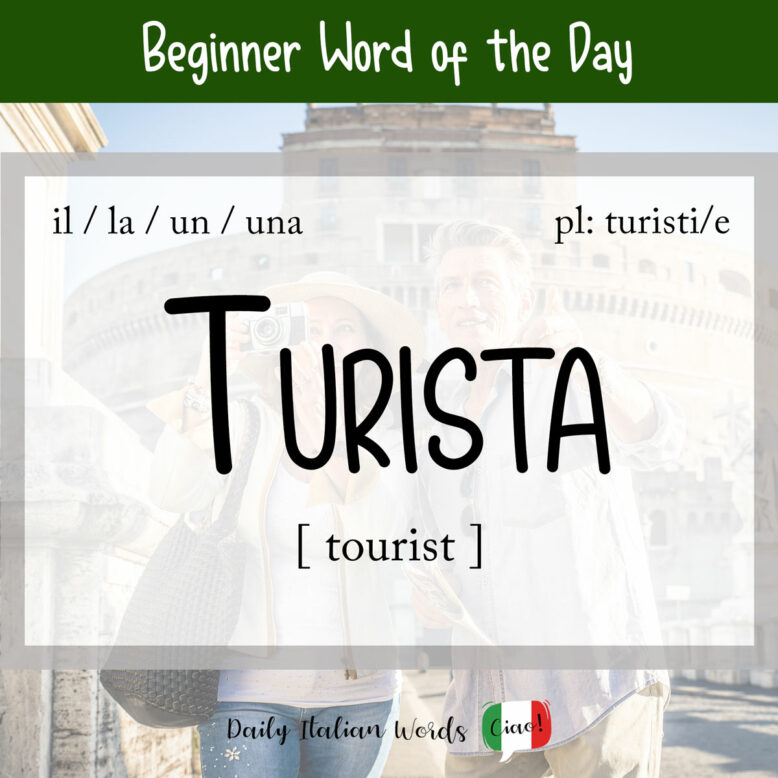Tourism is one of Italy’s most profitable industrial sectors, with an estimated 47.7 million turisti (tourists, singular turista) visiting the country every year. That makes it the fifth most visited country in the world!

An interesting fact about the word turista is that unlike many Italian words, it derives not from Latin but rather from the English word tourist, which in turn comes from the French touriste.
Questa città è sempre piena di turisti in qualsiasi stagione.
This city is always full of tourists no matter the season.

The adjective turistico (touristic / touristy) usually translates as tourist when it modifies a noun, such as for example, ufficio turistico (tourist office) or guida turistica (tourist guide).
When visiting a popular tourist destination (destinazione turistica), it is important to avoid falling into tourists traps (trappole per turisti) as you could end up spending a lot of money for what may be an unsatisfying experience. And if you can avoid travelling during the peak tourist season (stagione turistica), you may also find better deals on hotels and tourist attractions (attrazioni turistiche).
Questa è una destinazione turistica frequentata soprattutto nei mesi estivi.
This is a popular tourist destination especially in the summer months.
Many people who live and work in tourist destinations have mixed feelings about “turisti mordi e fuggi” (literally “bite-and-flee tourists“). This particular kind of tourist tends to visit for a very brief period of time without taking full advantage of everything the destination has to offer for economic reasons or otherwise.

Heather Broster is a graduate with honours in linguistics from the University of Western Ontario. She is an aspiring polyglot, proficient in English and Italian, as well as Japanese, Welsh, and French to varying degrees of fluency. Originally from Toronto, Heather has resided in various countries, notably Italy for a period of six years. Her primary focus lies in the fields of language acquisition, education, and bilingual instruction.


